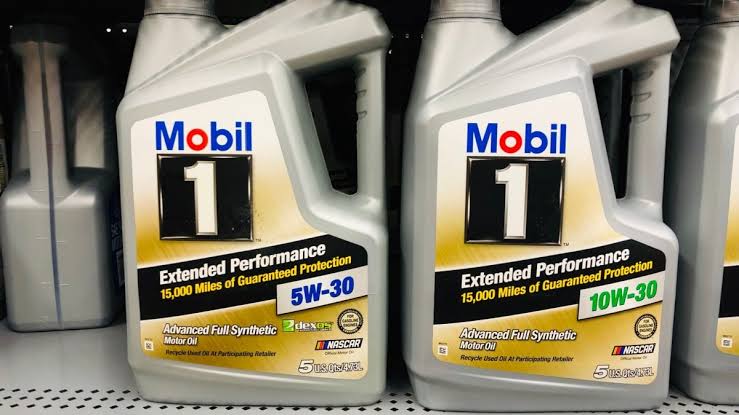5W-30 multi grade oil is ideal for private vehicles and light-duty petrol and diesel engines. It also provides a better cold temperature start than 10W-30 oil. On the other hand, the slightly thicker oil,10W-30, provides better lubrication for commercial vehicles and heavy-load engine cars.

Which is better 5w30 or 10w30?
5w30 is a great multigrade oil for use in low starting temperatures as well as high summer temperatures. It is also more fuel efficient since it creates less drag on the bearings and moving engine parts. 10w30 is thicker and may provide better sealing capability for older engines.
Is 5w30 or 10w30 better for summer?
It won’t idle and takes a while to smooth out. 5w30fixes that nicely, and it doesn’t grumble very much until its about -15F or so, which we do see fairly regularly. On the flip side, the 5w30 tends to be consumed much more rapidly in the summermonths, so the 10w30 takes over with less consumption.
When should I switch from 5w30 to 10w30?
You don’t really need to change to the 10W30. The 5W and 10W are the numbers that tell you the low temperature behavior of the oil and the second number tells you the high temperature behavior. The oils only differ in cold weather viscosity. If you never see temperatures below zero F then either 5W30 or 10W30 is fine.
Can I use 10W-30 instead of 5w30?
Yes. 5w30 and 10w30 are both 30 weight oils and the exact same thickness in your engine when it is at operating temperature. The 5w30 is better because it thickens less when cool or cold.
Is Thicker oil better for high-mileage cars?
A: Yes. This is a practical method to improve oilpressure in an older, high–mileage engine. The slightly thicker oil film from the heavier base weight oil — 10W — can help protect worn engine bearings as well.
What happens if I put 10W40 instead of 5w30?
If you use 10-w-40 instead of 5-w-30 specified by the manufacturer then the viscosity of 10-w-40 used by you will be higher and oil thicker than what is specified during winters. Similarly the oil viscosity will be higher and oil thicker than specified during summers.
What happens if you put the wrong oil in your car?
You might notice a few oil spot in your garage or under your car because using the wrong oil canlead to leaks, or you might become aware of a burning smell while driving. If the oil isn’t working as it should engine parts might not be lubricated well enough and cause friction, which can burn the oil.
Will thicker oil damage my engine?
Not only that, but the engine will waste energy pumping the thicker motor oil, reducing fuel economy. Since thicker oils don’t transfer heat as well as thinner oils, operating temperatures willincrease, too, possibly leading to accelerated chemical break down and harmful sludge and deposits.
Can I switch from 5w30 to 10w40?
It needs 5W30 or something close to it. Read the manual. You CAN mix oil grades, as long as the viscosity (weight) of the oils mixed is within the range recommended.
What oil is best for high mileage cars?
5 Best Motor Oils for High Mileage Engines
- #1 – Mobile 1 High Mileage Synthetic Oil.
- #2 – Royal Purple HMX Synthetic Oil.
- #3 – Mobile Super High Mileage Synthetic Oil.
- #4 – Castrol GTX High Mileage Synthetic Blend Oil.
- #5 – Pennzoil High Mileage Synthetic Blend Motor Oil.
Which oil is thicker 5w30 or 10W40?
A 10w-40 motor oil is a thicker oil at startup than a 5w-30 motor oil. Therefore, 10w-40 oil clings to the engine’s moving parts more than the lower viscosity 5w-30 oil.
Does 10w40 hurt 5w30 engine?
Your vehicle does not use 5W-30 oil. The recommended oil viscosity for your vehicle, according to Kia documentation, is 10W-40. If you drive the vehicle in exceptionally cold weather, well below 32 degrees, you can use 5W-30 oil but even 10W-40 isstill perfectly OK to use if outdoor temperatures are below freezing.
Should I use thicker oil in an older engine?
For an older, high-mileage passenger car, it is recommended to switch to a thicker viscosity oil, such as 10W-30, when approaching and passing 100,000 miles, to lubricate the engine well for preservation.
Is SAE 30 thicker than 10W30?
Which Is Thicker SAE 30 Or 10W30? There is a slight difference between SAE 30 and 10W30 oil. The viscosity grade at a higher temperature is the same and acts almost the same at a higher temperature. But ata lower temperature, 10W30 oil performs better by getting thicker than other multi-grade oils.
What is SAE 30 oil used for?
SAE 30 oil is typically used for smaller air-cooled engines, like the ones in small tractors, lawnmowers, and chain saws. Most motor oils today are multi-grade oils that will perform well in all seasons.
Should I use SAE 30 or 10W30?
Older engines can use the SAE30, while the 10W30 is for modern engines. Again, the SAE30 is better for warmer temperatures while the 10W30 is suitable for varying temperature ranges and also works well in cold weather.
Can I use 10W30 instead of SAE 30 in my lawn mower?
Yes, you can make use 10W30 engine oil insteadof the SAE30 in your Lawn Mower. Older engines can use the SAE30, while the 10W30 is for modern engines. Again, the SAE30 is better for warmer temperatures while the 10W30 is suitable for varying temperature ranges and also works well in cold weather.
Is it OK to use 10w30 instead of 5w30?
Yes, you can use 10w30 instead of 5w30 in most cases. However, it is crucial to check your vehicle’s owner’s manual to ensure that 10w30 is the correct weight for your car.